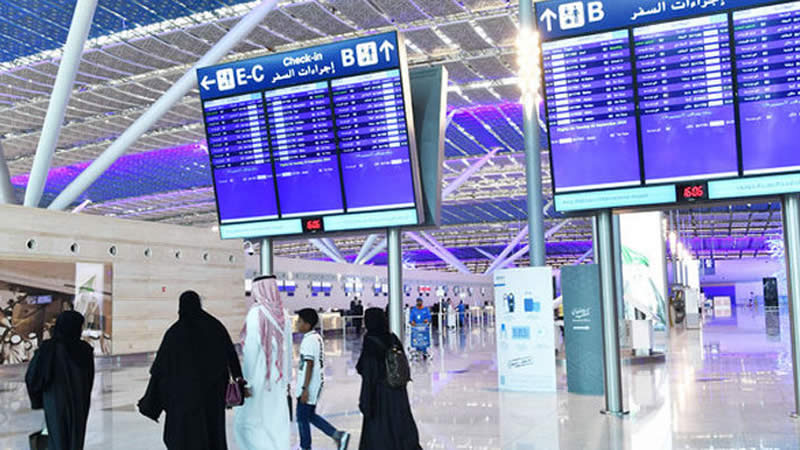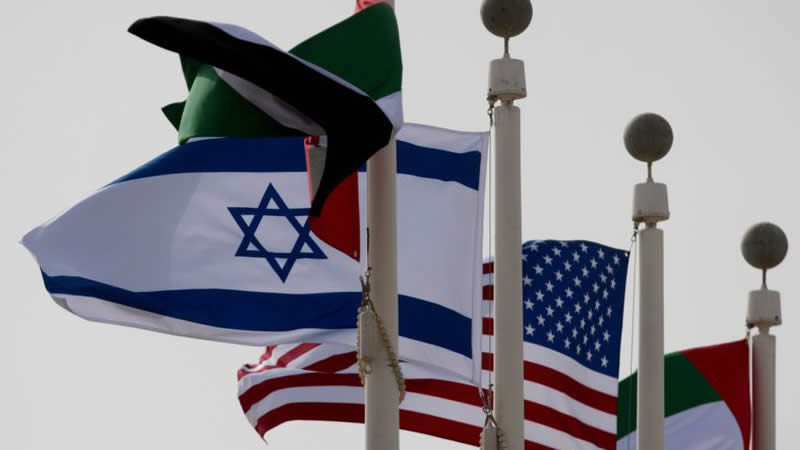 JEDDAH: With Ramadan and the peak Umrah pilgrimage season winding down, King Abdulaziz International Airport was in chaos Tuesday.
JEDDAH: With Ramadan and the peak Umrah pilgrimage season winding down, King Abdulaziz International Airport was in chaos Tuesday.
Long flight delays and thousands of luggage-laden passengers were seen milling about in lounges and crowding in disorganized queues that overwhelmed the airport’s ability to smoothly manage departures.
All flights between 10 p.m. and 5 a.m. on Monday and Tuesday were delayed from one to seven hours and things weren’t getting much better by Tuesday evening.
“I don’t know when I’ll be able to reach the counter, but hopefully I’ll make the flight,” said Pakistani passenger Matin Raza, who had arrived before sunset for his 10:10 p.m. PIA departure only to be told he had to wait so passengers for earlier flights could be processed. Later, Raza learned that his flight had been delayed; the new departure was scheduled for 4:40 a.m.
Flights by SriLankan Airlines, Gulf Air and Emirates were delayed with no immediate announcement about when the flights would depart. A Sudan Airways flight scheduled to leave around 10 p.m. was rescheduled for 7 Wednesday morning.
All flights were booked full, leaving many with no seats in the near future.
Egyptian Muhammad Darwish has been in the airport since Monday after missing his flight hoping to find a new seat on an EgyptAir flight. “Though there are three flights today, I’ve been told to wait. But from the looks of it, it seems that I’ll be lucky to get a seat,” he said.
Adding to the problem was the new conveyor system’s failure to handle the baggage people were trying to cram onto their flights. At least three belts stopped functioning Monday and airport staff had to physically carry bags to the baggage-loading areas.
“Minor glitches are OK, but three conveyor belts going out of service at one time badly affected the entire operation at the airport,” said one exasperated ground handler.
As passengers grew weary of their long delays, their frustration mounted. “It seems the airport authorities were not adequately prepared to handle the massive end-of-Ramadan rush,” said one Emirates passenger.
Airport officials were equally frustrated at the amount and types of baggage passengers were trying to check in.
Mazen Khashoggi, director-general of KAIA, blamed the chaos on passengers as well as airlines. He said there is nothing wrong with the baggage-handling system. “The system is fool-proof. But the passengers are not complying with the regulations. They are coming with over-sized luggage that is also heavier than their allowance. It is putting pressure on our system,” he said.
Indeed, it is common for pilgrims to load up on a huge amount of goods during their stay and then argue with airline staff when they reach the check-in counter about taking their bags, thus exacerbating delays and passenger bottlenecks. The airline staff often relent and agree to take over-sized and heavy bags as they try to speed things up that then creates a culture that encourages more passengers to insist on their overweight and over-sized bags being checked in.
According to IATA rules, each passenger is allowed to carry up to 20 kg. But the airlines operating in Saudi Arabia often allow luggage up to 45 kg. Khashoggi said many airlines at KAIA are often going beyond 45 kg.
The only people happy to see the chaos were the baggage porters, who were charging up to SR200 to carry bags on their carts through the check-in process -arabnews











